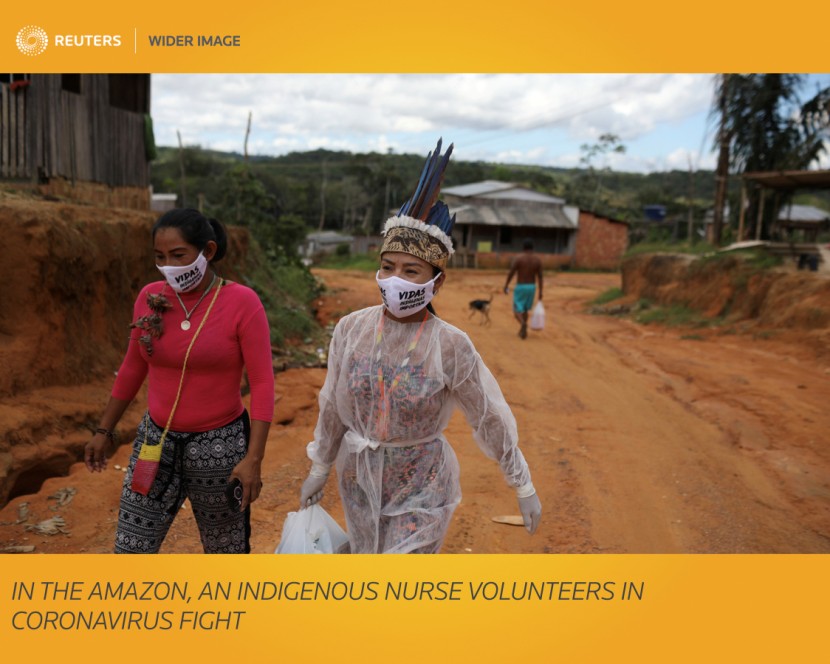
With minimal help and support within reach, the forests of Brazil where indigenous people live has already hit hard by the coronavirus disease (COVID-19) pandemic as the number of cases and deaths increase at a very alarming rate.
According to the Articulation of Indigenous People of Brazil (APIB), an advocacy group in the country tracking the COVID-19 mortality and morbidity rate among the indigenous people's population, there have been 125 deaths out of the 980 confirmed cases. These numbers equate to a mortality rate of 12.6%, which is twice the national mortality rate of Brazil which is at 6.4%.
While the data released by the Special Secretariat of Indigenous Health of the country's Health Ministry only reflected 34 deaths and 695 cases of COVID-19 in the indigenous communities, they only monitor the population of IPs who live in traditional villages. Meanwhile, the AIPB also monitors those indigenous people who migrated to towns and cities seeking education and jobs.
According to APIB many of the cases and deaths of IPs are from those who left their villages and went into the urban areas. This is because they may end up having problematic living conditions and minimal access to public services, thus making them more vulnerable to health risks.
Limited Access to Healthcare
APIC executive coordinator, Dinaman Tuxa said that the pandemic as taken advantage of the many years of neglecting the indigenous communities and is now causing a big threat to their lives. He also noted that as a member of the Tuxa people of Brazil, their communities lie in some of the most remote areas in the country and that they have limited to zero access to infrastructure.
In line with this, he said that there aren't any available hospitals in the areas surrounding their communities with the nearest hospital being a four and a half hours away by driving. He also stressed that the main prevention that the 1,400 people comprising their community has is complete isolation.
According to CNN, Joenia Wapichana, who is the first indigenous woman to sit in Brazil's congress said that indigenous communities, even those who have access to basic healthcare are not ready to combat coronavirus. Thus, she added that those who have been infected needed to be removed from the community to prevent transmitting the disease, However, long travels are needed in order to get access to hospitals and upon reaching the infrastructures, they still need to compete for access to services since the pandemic has already caused shortages.
Deforestation exposed IPs to Higher Risk
Meanwhile, activists fighting for the rights of indigenous people cautioned that the communities are even more exposed to threats due to the increase in deforestation activities since the country's President Jair Bolsonaro took office.
According to them, Brazil's National Institute for Space Research (INPE) stated that deforestation in Brazilian rainforests has increased by almost 64%by April. These activities have exposed indigenous communities to greater health risks and that the virus could have invaded the territory due to illegal loggers.








